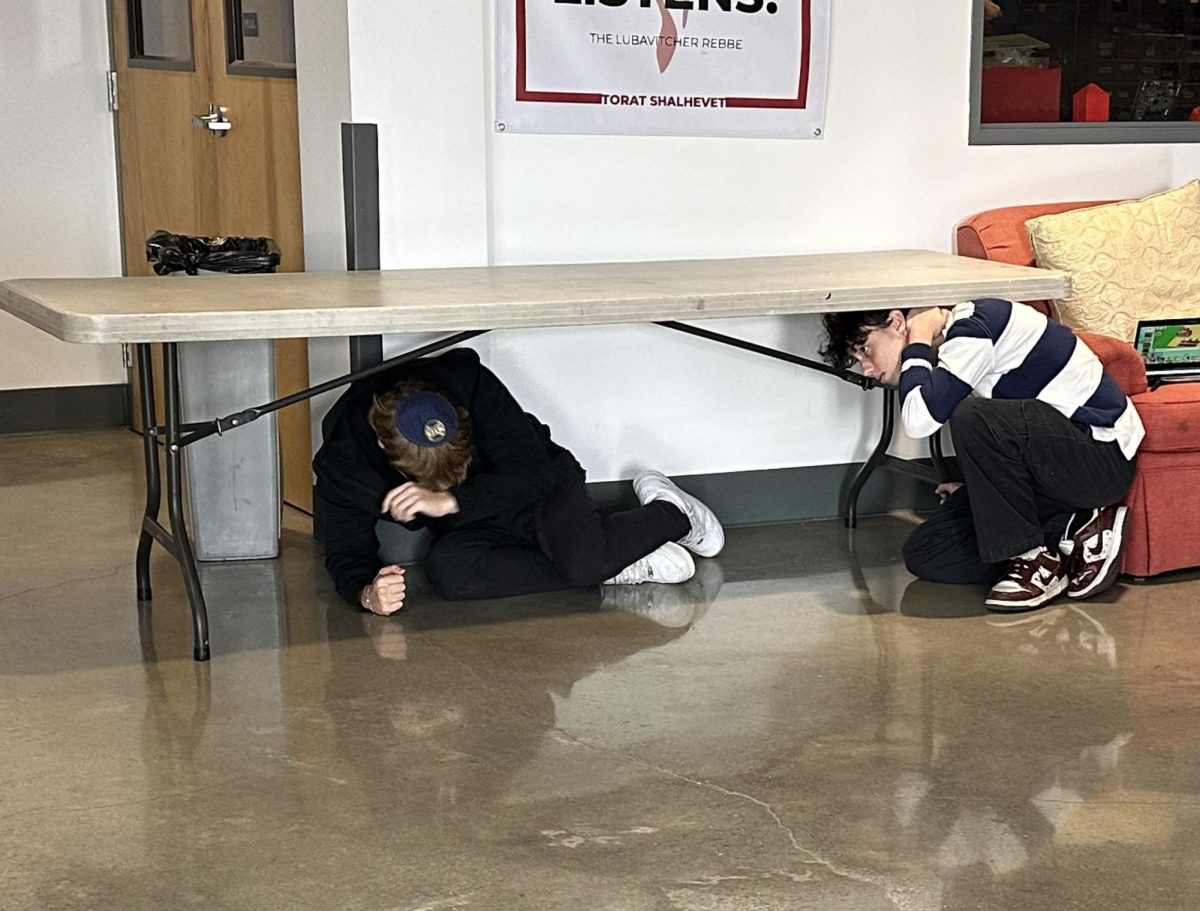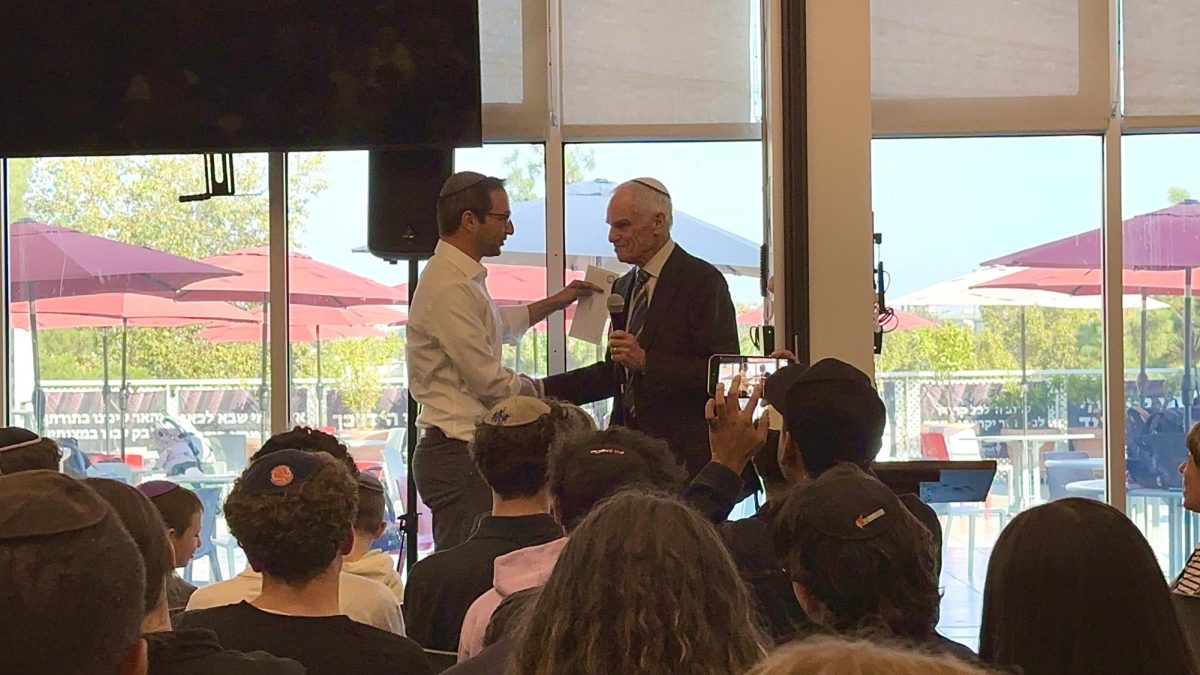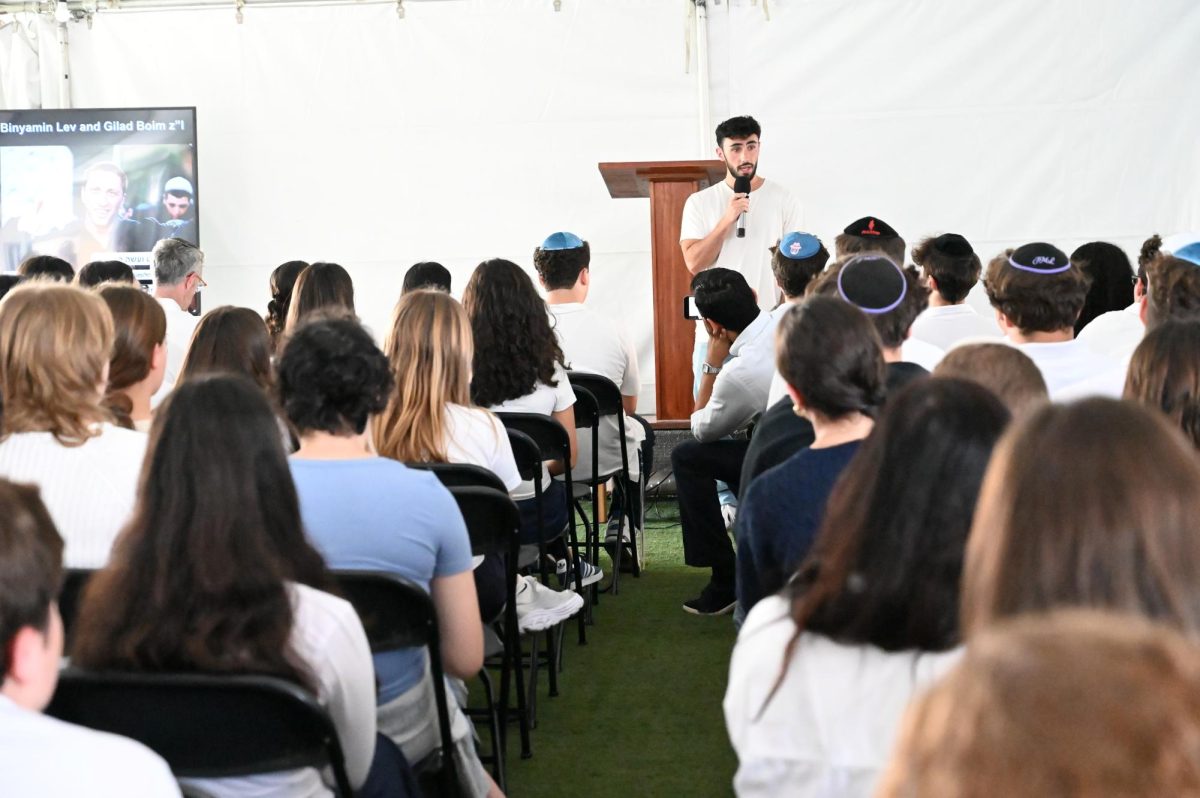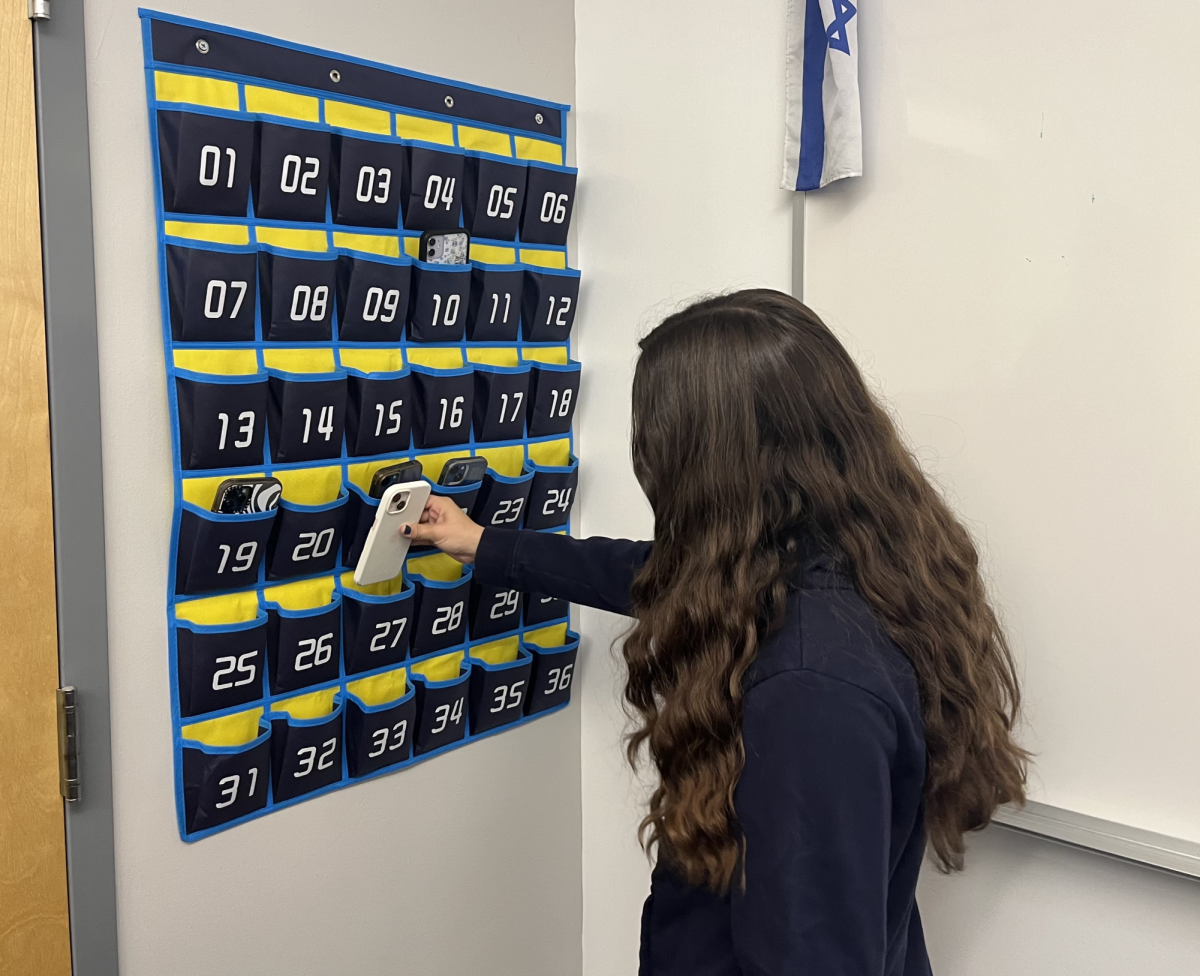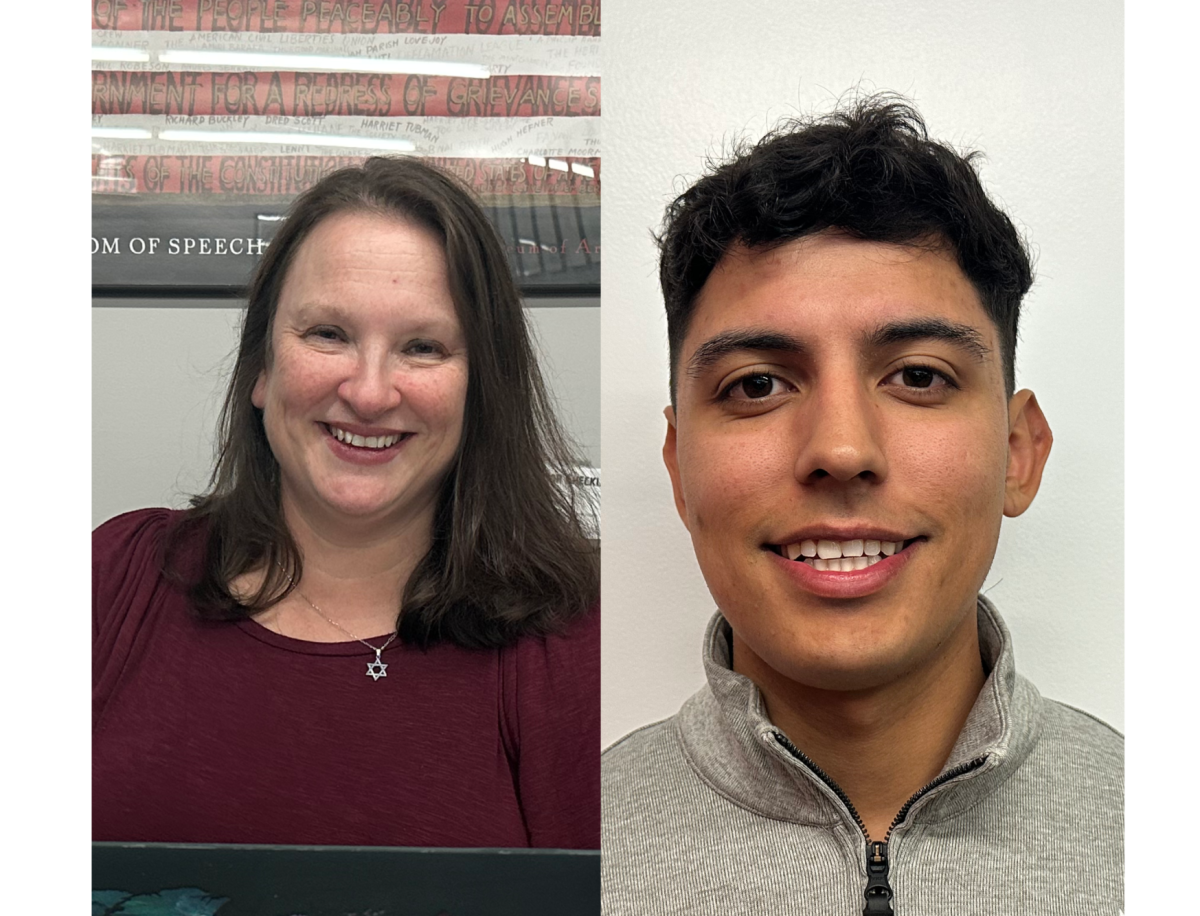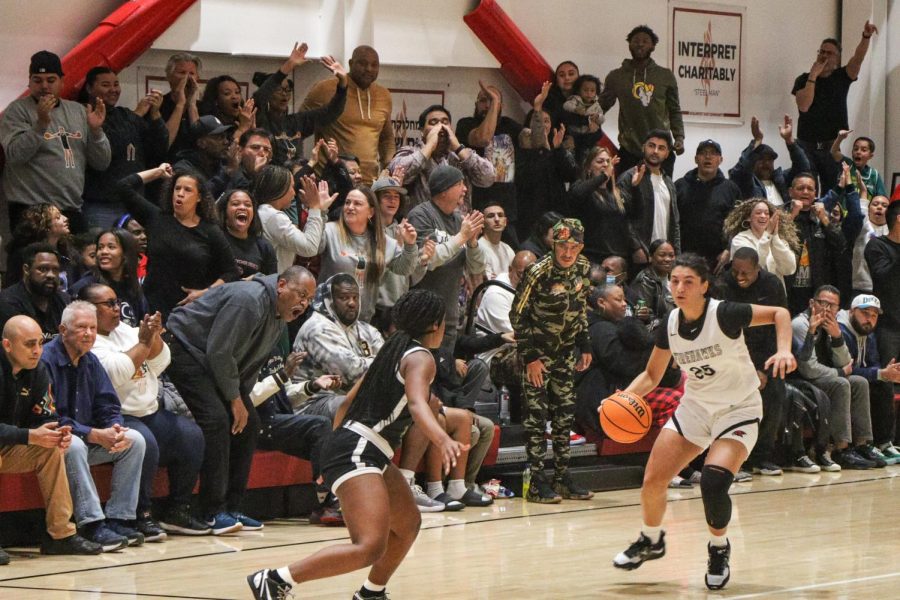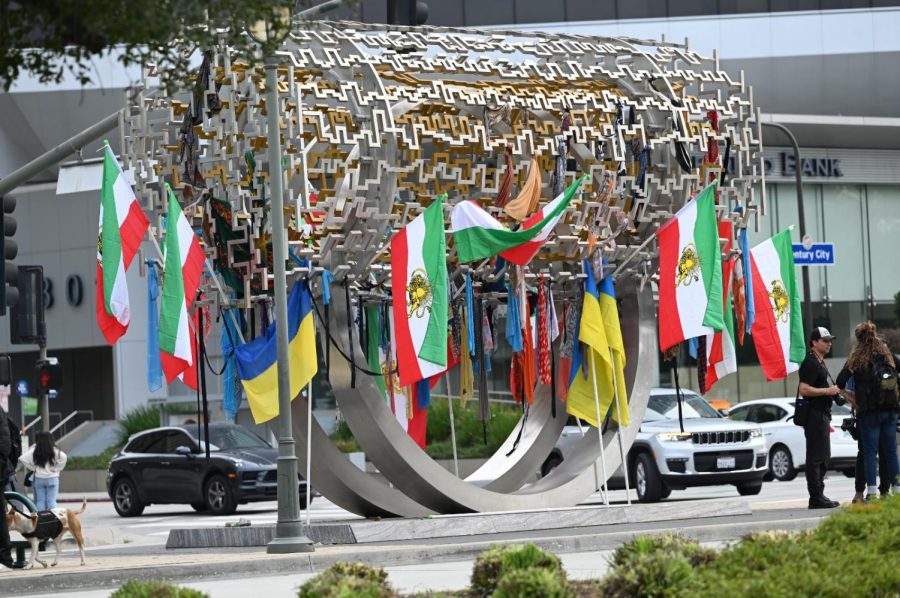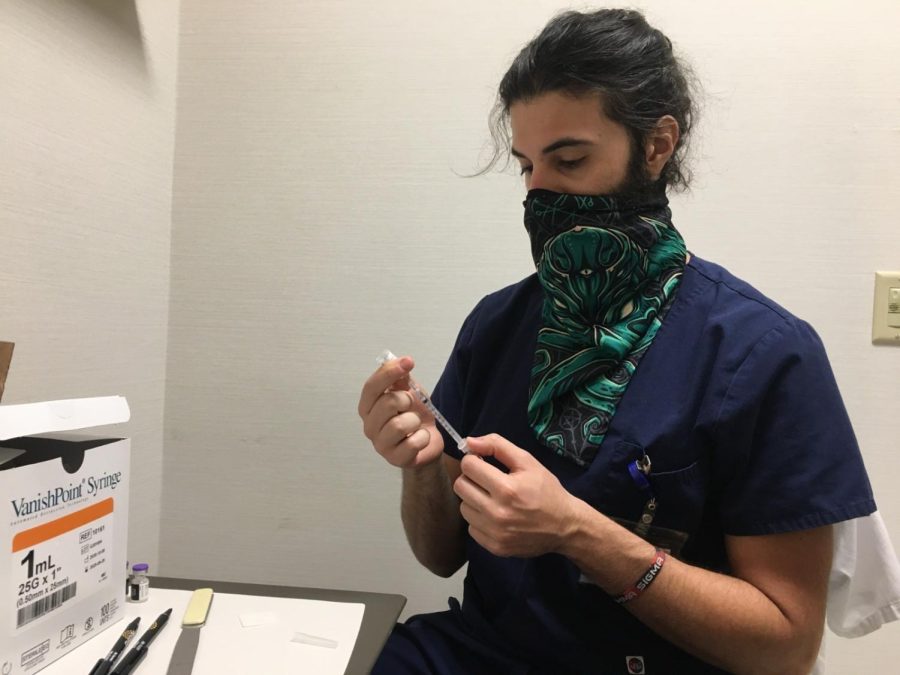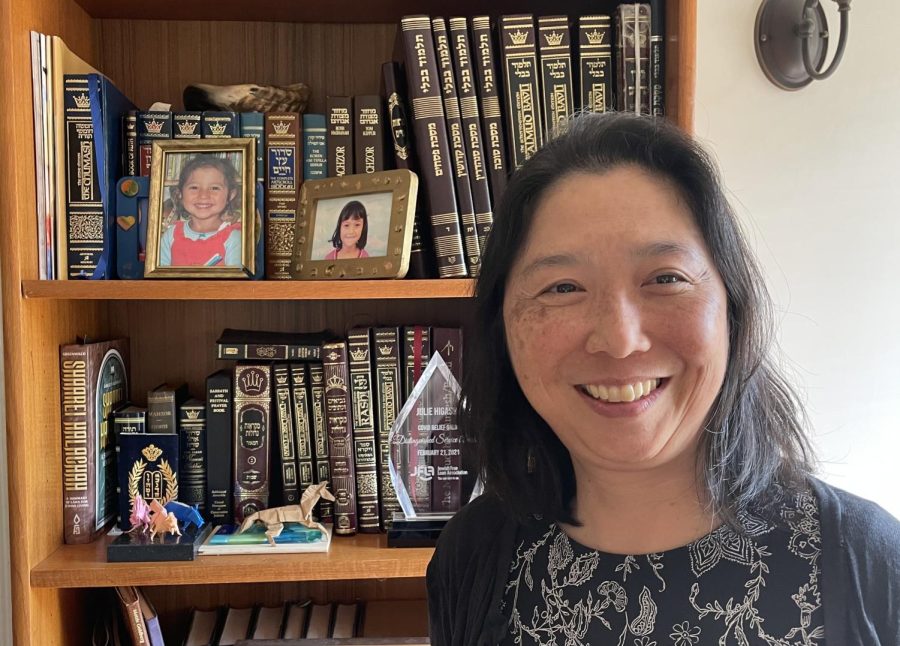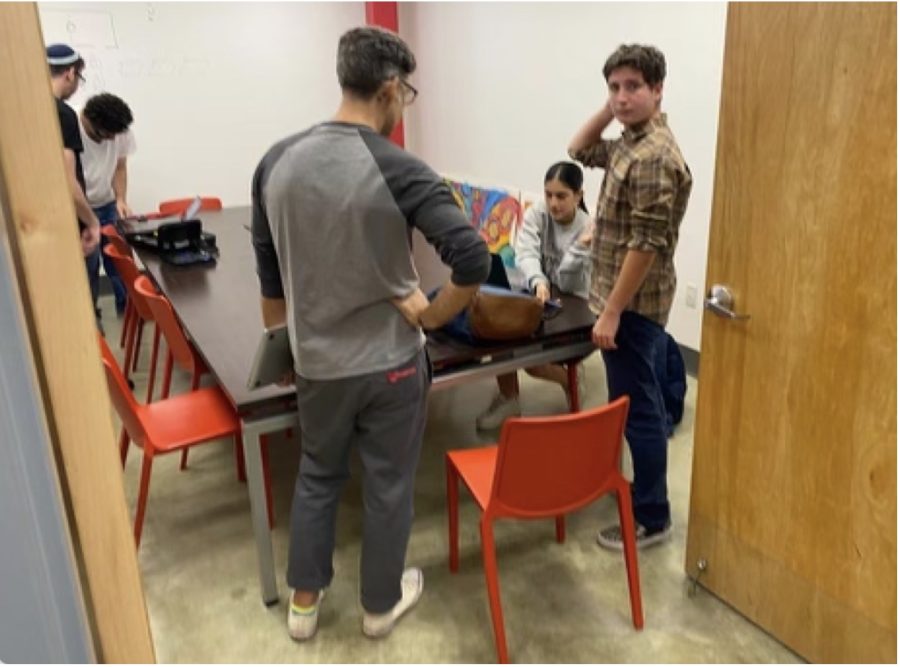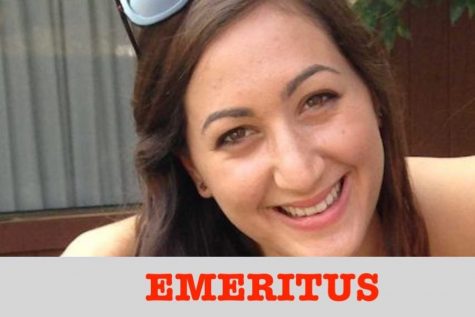“There is some talk in the Jewish community that donating organs is against halacha,” said Dr. Gabriel Danovitch, opening a special Town Hall Nov. 4. “Actually, by donating one’s organs, one is performing a great mitzvah–pikuach nefesh,” or saving a life.
Dr. Danovitch, who also happens to be the father of Dean of Students Mr. Roy Danovitch, was addressing students, faculty and alumni at a well-publicized event co-organized with Donate Life, a nonprofit organ and tissue registry which encourages drivers to register as organ donors in case of accidental death. Director of Technology Mr. Yossie Frankel filmed and streamed the event live to the Internet.
“I came because I am interested in the issue of organ donation,” said parent Abigail Yasgur, who attended the talk. “It is controversial, and I am also interested in what kids think.”
Donate Life works to dispel myths about organ donation, and Dr. Danovitch, a UCLA nephrologist many of whose patients need kidney transplants, knew his audience would have lots of questions. For example, he explained that contrary to popular belief, organs are only taken when a donor is brain dead, a condition that is irreversible.
He also explained that the doctors who care for the recipient are never the same doctors who remove the organs from the deceased, and that a donor’s family is always consulted before donation.
But death was not the focus of the assembly. Instead, the entire program centered around organ donation saving lives. Donate Life hung a banner and offered free keychains, hand sanitizer, pencils and wristbands with the slogan “You have the power to donate life.” Dr. Danovitch explained the importance of saving a life in Judaism and said it overrides the obligation to bury a person whole.
“You don’t need to be a licensed driver to let your family know that, if the situation comes up, you would like to be an organ donor,” Dr. Danovitch said. But he suggested that whether you want to be a donor or not, you should discuss this issue with their families.
Later in the program, he showed a video of people telling personal stories about receiving organ donations, or who donated organs from their deceased loved ones. Afterwards, Dr. Danovitch introduced a few people to tell their personal stories about organ donation.
“I am now aware that people with diabetes are prone to getting their kidneys damaged, and my youngest sister has diabetes,” said alumna Debra Melamed ‘09. “I’m all for giving to her.”
Sophomore Emilie Benyowitz told the story of her grandmother, who needed a liver transplant and was too sick to walk. After she received a transplant, and she became much healthier. Emilie’s grandmother writes a letter to the family of the donor every year.
A Jewish man who said he lived in the Valley said his son had attended a program on organ donation and discussed wanting to be a donor with his parents. The teen was later killed in a car accident and his organs were able to save a person’s life.
Asked by Dr. Danovitch whether that was helpful at the time of his son’s death, the man replied, “No, nothing was really helpful then. But because we had talked about it, it was easy — an easy decision at a time of difficult decisions.”
At the beginning of the assembly, Dr. Danovitch asked everyone who would want to be an organ donor to raise their hands. When he asked again at the end of the assembly the number of hands almost tripled, with an especially large increase among sophomores.
Jaclyn Kellner, Deputy Editor, also contributed to this story.


